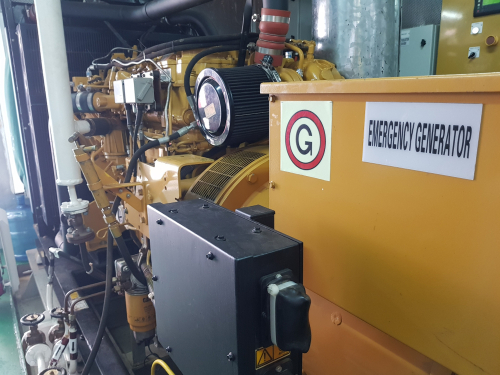What happens when the power goes out at your house? You tell your kids not to hang with the fridge open and listen to everyone complain about not being able to watch TV use the Internet.
But what happens when the power goes out at a hospital? People’s lives are depending on essential medical devices powered by electricity.
That’s where industrial generators come in. These supersized generators kick on when the power goes out to supply a continuous flow of power to your building.
Hospitals are only one place where these generators are important. They’re also vital for stadiums, construction sites, logistics and supply centers, hospitality & restaurants, and more.
So, what are the basics you should know about backup power industrial generators? Let’s find out.
How Do Industrial Generators Work?
The generator’s engine creates mechanical energy. The alternator takes that mechanical energy and uses magnets to generate the electricity.
From there, the generator forces electrical current through the wires and out to the building it will be powering.
The voltage regulator ensures that the generator supplies a steady stream of electricity at the voltage specified by the generator’s design.
A hard-working generator produces a lot of heat. Thus, it contains its own hydrogen cooling system. Regardless, always install your industrial generator with at least five feet of clearance on all sides to allow heat to freely escape.
The generator has many moving parts that need constant lubrication in order to run smoothly. To this end, it has a lubricating system that sprays oil onto the moving parts. Set up a regular schedule to inspect the system and ensure that there is enough oil at all times.
While the generator is running, it is producing toxins and chemicals that are poisonous. Ideally, you should install your generator outside to avoid these toxins accumulating indoors.
The roof is a good spot if it will support the weight. The basement or a spot out back can also be a good location, as long as you don’t operate in an area prone to flooding.
However, generators are loud and some areas have noise ordinances that you must comply with. This means that even if you don’t install your generator indoors, you may need to add a sound-dampening enclosure around the generator itself.
If you must install your generator in an enclosed space, ensure that a proper exhaust system is also installed to route these poisons to a safer spot.
Transfer Switch
There are a couple of types of transfer switches you can choose from. This determines how the generator will start. Automatic transfer switches will turn the generator on automatically when a power outage occurs. You can also opt for a manual system if you prefer.
When choosing your generator, consider the application. Are you running a hospital where an interruption in electricity is life-threatening? In that case, you should always choose the automatic transfer switch system for both your primary and backup generator.
If you’d rather control the starting of the generator, the manual transfer switch gives you that option.
Regardless of which type of switch you install, have it assessed by an electrician or expert generator technician. They should check the amperage of the system and ensure that it is installed in an optimal location for starting your generator.
Regular Maintenance and Servicing
Whether you buy a used or new generator, you should invest in a regular maintenance and servicing plan as offered by a professional generator company. Even if you only use your generator once in a blue moon, regular maintenance will ensure that your generator runs smoothly when needed.
The importance will vary depending on the application, of course. For applications where an interruption of power is unacceptable, you may want to consider having the generator serviced more frequently. However, at the very least you should follow the manufacturer’s recommended service schedule.
When choosing a servicing company, make sure they provide full services. All systems — fuel system, exhaust system, cooling system, etc — should be inspected for hazardous leaks.
The technician should check the oil as well as change both the oil and the filter at regular intervals. Make sure that old oil is properly disposed of to avoid liability and help protect the environment.
The technician should also gently clean the cooling system and check all coolant levels.
If the generator is not used often, diesel fuel should be tested every three to six months. This is because the fuel is subject to corrosion and contamination and does not have a long shelf life.
The batteries should also be checked, tested, and cleaned regularly. This is particularly important for standby systems that need to come on automatically. Weak batteries or those without a full charge are a common culprit when it comes to generator failures in standby systems.
Keep the entire generator and the area around it nice and clean. This will help you to spot leaks or other problems immediately.
In addition, for generators that aren’t run very often, they should be started and run frequently. Once a month is good for diesel generators. This helps to keep everything lubricated, use up fuel before it goes bad, and keeps the electrical contacts from oxidizing.
Buying, Renting, or Selling Industrial Generators
We hope this information has helped you understand a little bit more about your industrial generator. A well-cared-for generator will last many years and provide your building with reliable service.
Looking for a new generator? We can help. We sell, rent, and will even buy your old generator when you want to upgrade. Contact us today and we’ll help you choose the right generator for your needs.









